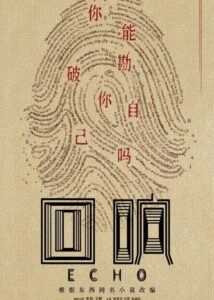Under the Microscope Episode 9 Recap
> Under the Microscope Recap
At a banquet, county magistrates discussed the recent Silk Poll Tax case. They planned a joint trial for the next day to deliver a verdict, aiming to demonstrate their concern for the common people. Master Fan seized the opportunity to warn that if the imperial court used this as a pretext, the situation could escalate. He pointed out the nationwide land remeasurement policy, arguing that conceding now would only embolden the court to impose harsher measures in the future.
Several magistrates resolved to grit their teeth and refuse to acknowledge the tax, hoping the court would then understand their difficulties. Magistrate Fang of Renhua County, present at the discussion, merely echoed their sentiments. After drinks were served, guests gradually departed, leaving Magistrate Mao and Magistrate Fang to discuss matters. Magistrate Mao chastised Magistrate Fang, calling him foolish for allowing Shuai Jiamo and Feng Baoyu's arrest warrant to be transferred to Jin'an Prefecture.
Magistrate Mao explained that the matter should have been quietly handled by him in Lanxi County, but Prefect Huang Ningdao intercepted it, turning it into a joint trial between three offices. Magistrate Fang coolly retorted that the situation was complex and unfair, as none of them had informed him in advance, hiding their actions, only to blame him now.
He then pressed Magistrate Mao for the true cause of the fire at the Lanxi Archives, but Magistrate Mao evasively stated that the arrest warrant clearly indicated Shuai Jiamo and his friend were responsible for the arson. Magistrate Fang simply acknowledged his response. The following day, Prefect Huang presided over the joint trial of Shuai Jiamo and Feng Baoyu.
The accusations were read, stating they had set fire to the Lanxi Archives and fled after failing to complete an investigation ordered by Inspector Liu. When asked to plead, both vehemently denied the charges, with Feng Baoyu loudly claiming they had been kidnapped and threatened. Prefect Huang was intrigued, noting this contradicted the official document. Magistrate Mao suggested flogging them to get the truth, but Prefect Huang urged him to calm down.
Cheng Renqing then appeared in the courtroom, eloquently presenting his arguments. He warned Feng Baoyu and Shuai Jiamo to speak carefully, as every word would be recorded and false accusations constituted a crime. Feng Baoyu, however, retorted, "Do you think we are as shameless as you are?" Cheng Renqing promptly ordered the scribe to record Feng Baoyu's contempt of court. Inspector Liu then instructed Feng Baoyu to narrate the events truthfully without shouting.
Feng Baoyu testified that Shuai Jiamo had been tasked with checking documents in the Archives. Around 1 pm that day, Feng Baoyu was kidnapped by masked men on the streets of Lanxi County. These men then threatened Shuai Jiamo to remain in place and not disclose his investigation findings. Later that night, both Feng Baoyu and Shuai Jiamo were tied up inside the Archives, which the masked men then set on fire, intending to burn them to death.
Cheng Renqing immediately challenged the testimony, asking why they were still alive if the Archives burned to the ground. Feng Baoyu claimed they had "knocked down the door and were lucky enough to escape." Cheng Renqing then questioned why they did not report to the authorities but instead fled to Tongyang County overnight. Feng Baoyu clarified that the masked men had brought them to Tongyang.
Cheng Renqing relentlessly highlighted the inconsistencies in Feng Baoyu's account, mockingly asking whether the masked men wanted to kill them or were just "practising doing legwork." He advised Feng Baoyu to construct a more coherent story next time. Feng Baoyu insisted his statements were true, though he could not explain the masked men's motives. When pressed by Cheng Renqing, Feng Baoyu identified the masked man as Lu Feilong.
When the court clarified that Lu Feilong was the Head Constable of Lanxi County, Cheng Renqing again pointed out the absurd contradictions: Lu Feilong kidnapped them, burned his own county's Archives, and then transported them over a hundred li to Tongyang County. Feng Baoyu corrected that Lu Feilong had intended to kill them in a temple in Tongyang, but they had managed to escape. Cheng Renqing dismissed this as "outrageous," questioning why Lu Feilong would not act in Lanxi.
He then summoned Lu Feilong to the stand. Lu Feilong provided an alibi, stating he was dining with several gentry at the time of the fire, which a witness corroborated. Cheng Renqing emphasized that Lu Feilong had "neither motive nor time" for the alleged crimes. Feng Baoyu countered that Lu Feilong "did" have time, as he had pursued them when they fell off a cliff and hid in a farmer's house, claiming someone in Tongyang County must have seen him.
Cheng Renqing dismissed this, stating that Lu Feilong's duty was to arrest criminals, and Magistrate Deng from Tongyang could confirm Lu Feilong had reported to the county office upon entering Tongyang. Feng Baoyu argued that if Lu Feilong had no motive, neither did he and Shuai Jiamo. Cheng Renqing then called another witness, an old clerk from the Lanxi Archives.
The old clerk, under implied threat, testified that on the day of the incident, Shuai Jiamo stayed behind after other scribes left, waiting for a gentleman who was Feng Baoyu. According to the clerk, Feng Baoyu and Shuai Jiamo then closed the door, argued about "fish-scale map registers not being checked in time" and "not wanting to be implicated," lit candles, and then forced him out when he warned them about the fire.
Shuai Jiamo immediately interjected, declaring the clerk was lying. He clarified that he never argued with Feng Baoyu and his investigation progress was not delayed. Shuai Jiamo further explained that the clerk's testimony about "fish-scale map registers" was impossible, as his job was to audit tax ledgers, while fish-scale map registers pertained to land, making them entirely separate matters.
He then revealed that Inspector Liu had sent two scribes who were actually investigating the fish-scale map registers, and suggested the old clerk must have confused them with his own work. He requested Inspector Liu to summon his scribes to corroborate this. Amidst the courtroom murmurs, Inspector Liu's scribes were questioned. They confirmed that Shuai Jiamo had indeed only focused on tax and labor related documents, never touching the fish-scale map registers.
Prefect Huang then directly questioned the old clerk about his false testimony. Cheng Renqing attempted to defend the clerk, claiming he was senile and simply misheard, and therefore his testimony "doesn't count." However, Prefect Huang, enraged, lambasted the clerk for "making up lies for no reason and tricking all of us officials." He ordered the clerk to be flogged ten times and demanded to know who instructed him to lie, as the clerk was forcibly dragged away.
With the old clerk's testimony discredited, Prefect Huang declared Shuai Jiamo and Feng Baoyu innocent of arson, as there was no evidence to support the accusation. Feng Baoyu immediately asserted that since the clerk lied, their original claim must be true: Lu Feilong was indeed their kidnapper.
Prefect Huang acknowledged that Lu Feilong had an alibi, which made the timing inconsistent for the kidnapping accusation, and stated that the instigators behind the clerk's lies and the Archives fire would be investigated at a later date. He then turned his attention to the Silk Poll Tax case, asking Shuai Jiamo if he had completed Inspector Liu's assigned task and uncovered its origins. Shuai Jiamo confirmed he had.
Magistrate Mao quickly stood up, attempting to halt the discussion, arguing that the trial was about arson and, now concluded, the court should be dismissed. Prefect Huang angrily silenced him, explaining that the arson case was inextricably linked to the Silk Poll Tax case. He stated, "If we clarify the truth of the Silk Poll Tax case, everything can be resolved."
Magistrate Mao still insisted that other county magistrates should be present for such a discussion, but Inspector Liu asserted his authority to proceed with the case, as he had established an Investigation Bureau for it. Shuai Jiamo informed Prefect Huang that despite the Archives being burned, he had devised another method to prove the origins of the Silk Poll Tax: by examining the White Books of Tax and Labor from Renhua and Lanxi counties.
Magistrate Mao attempted to discreetly speak with Inspector Liu, arguing against the public display of these "lifeblood" documents, which, though crucial for county governance, went against imperial law and whose exposure would make future work impossible. Prefect Huang, however, remained resolute and ordered both Magistrate Fang and Magistrate Mao to produce their counties' White Books of Tax and Labor for Shuai Jiamo's review.
Magistrate Mao claimed Lanxi's white book had been burned, but Prefect Huang immediately refuted this, pointing out that as informal documents, they would not have been kept in the Archives. Undeterred, Magistrate Mao doubled down on his refusal, threatening to report Prefect Huang to the Ministry of Personnel and the Censorate if coerced.
Prefect Huang then turned to Magistrate Fang, who, having remained largely silent during the proceedings, suddenly found himself hailed as "Justice Fang" by the public outside the courtroom, cheering for his apparent stance for the people. Moved by the public's acclaim, Magistrate Fang declared that the Silk Poll Tax case concerned the welfare of Renhua's people.
He bravely stated that if Shuai Jiamo could uncover any errors, he would willingly sacrifice his official position to support the investigation and immediately dispatched someone to retrieve Renhua County's White Book of Tax and Labor. As the commotion subsided, Commander Ma Wencai, Assistant Surveillance Commissioner of the Jinqu Military Defense Circuit, arrived, disrupting the court.
He respectfully greeted Master Fan Yuan, acknowledging his past mentorship, and stated that he came to investigate the Silk Poll Tax case due to widespread public discussion. He insisted on sitting beside Prefect Huang. He also exchanged greetings with Cheng Renqing. Prefect Huang, after Commander Ma had taken his place, reiterated the need for the White Books of Tax and Labor. Magistrate Fang confirmed his aide was retrieving Renhua's.
Magistrate Mao, now cornered, agreed to send someone for Lanxi's book but claimed it would take a full day for the round trip. Inspector Liu, however, revealed that he had already commissioned a copy of Lanxi's White Book of Tax and Labor during his time in Lanxi, and it was currently at the Censorate, implying Magistrate Mao had something to hide.
Noting the long day and the wait for the documents, Prefect Huang declared a temporary recess, announcing the trial would resume that afternoon. Outside, Magistrate Fang was met by a jubilant crowd chanting "Justice Fang!" He accepted their gratitude, surprised by their fervent praise, and reiterated his commitment to Renhua's people. Meanwhile, Magistrate Mao confronted him, accusing him of breaking their alliance and making enemies. Magistrate Fang countered, distinguishing between official disagreements with Mao and personal conflicts with Master Fan.
Magistrate Mao scornfully predicted Fang's career would end, calling him a "cowering" dog. Fang retorted that it was better to quit than to be a sycophant, emphasizing the dignity of an imperial official. Magistrate Mao then, with palpable desperation, shared his life story: a "poor family" with "no men," his mother's immense sacrifices to make him a magistrate, and his lack of backers at court or connections in Lanxi.
He confessed that he "had" to rely on powerful figures like Master Fan to achieve anything, such as building three bridges and five granaries and funding a road. He lamented his reliance on "borrowed power" and the moral cost, feeling he had only his "conscience and dignity" left. Magistrate Fang listened, expressing understanding.
Magistrate Mao then fiercely declared he "cannot afford to lose" this case, vowing to "risk his life" to achieve his desired outcome, using the metaphor of a broadsword that, once swung, cannot be taken back, implying a ruthless resolve. He then departed. Later, Inspector Liu and Prefect Huang discussed their strategy for the afternoon session.
Inspector Liu deduced that Commander Ma Wencai had been brought by Fan Yuan, acknowledging Master Fan's vast network of connections, a "wide net" that could "engulf" anyone who dared to challenge him. Prefect Huang planned to use Shuai Jiamo's acquittal and Magistrate Fang's public defection to swiftly rule on the Silk Poll Tax, followed by Inspector Liu announcing the land remeasurement policy. Back in the jail, Shuai Jiamo's father's old friend, Brother Song, brought him a meal, including chicken soup.
Brother Song joked about eating chicken heads to cure "diseases of the mind," referencing Shuai Jiamo's father, who used to call them "arithmetic nuts." He mentioned finding an expensive physician for Shuai Jiamo's "mind disease" and offered to cover the costs. Shuai Jiamo, upon seeing the chicken, recalled his mother's similar saying about eating chicken heads. He then vividly recalled a memory: Brother Song bringing chicken to their house and taking his father and him into the Archives.
His father had explained the profound importance of the Archives, a place where "all the books, maps, household registers, and records of expenditure and revenue in the world have been collected. . . waiting for someone to read them," emphasizing that entry was only possible with his permission. Brother Song, observing Shuai Jiamo's deep recall, wondered if he remembered "a little too much." Shuai Jiamo firmly stated, "What's wrong is wrong. It must be corrected."
Brother Song remarked that Shuai Jiamo's "obsessive character is a lot like your father's," and added, "I've done my best" for him. A flashback then depicted a younger Shuai Jiamo, known as Duncheng, measuring a field with an older colleague, Ren. Ren attempted to pressure Duncheng to falsify the measurement for an "irregular field" belonging to the Fan family, by "shortening the rope" to make it appear smaller.
Ren offered money, despite it being prohibited by law, and argued that Duncheng's accurate measurements would cause tax discrepancies. He tried to convince Duncheng that no one, not even the magistrate, would question him, given his reputation and the Fan family's powerful connections in court. Duncheng refused the money and insisted on accuracy. The scene ended with villagers chanting "Abundant harvest."
The flashback concluded with Shuai Jiamo's father, observing young Duncheng about to be hit by a falling object while measuring, asking why he didn't dodge, lamenting his meager salary in the Revenue Office and the high cost of curing Duncheng's "illness."











